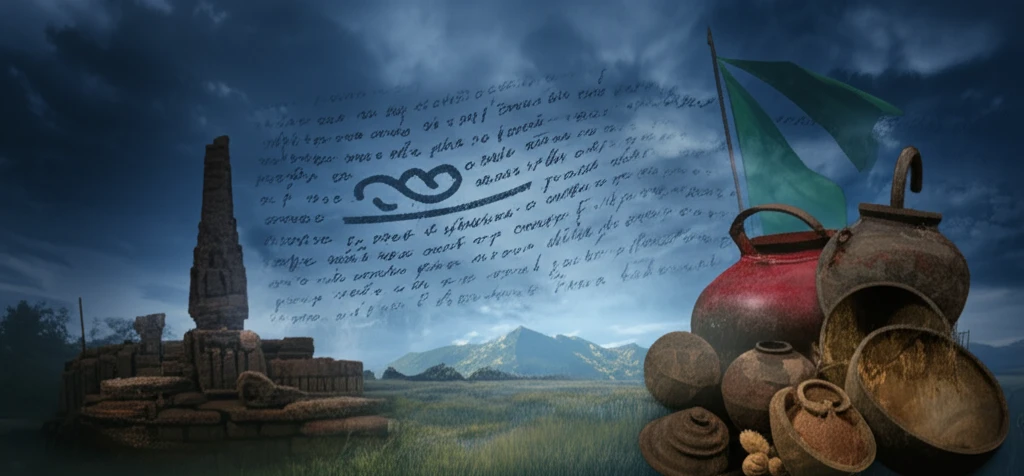
Unearthing Arakan: How New Studies are Rewriting Southeast Asian History
"Dive into the groundbreaking research that's challenging long-held beliefs about Arakan's cultural, religious, and political past, and its pivotal role in the Bay of Bengal region."
The Bay of Bengal has long been a crossroads of cultures, economies, and religions. Central to this vibrant exchange was the kingdom of Arakan, now known as Rakhine, which played a crucial role in pre- and early-modern Southeast Asia. For centuries, historians have pieced together Arakan's story, often relying on accounts from European colonizers or Persian records. But what happens when we shift our focus to the voices and artifacts originating directly from Arakan?
Recent studies are doing just that – unearthing a wealth of local inscriptions, manuscripts, and archaeological finds. These discoveries are not just filling in gaps in the historical record; they're challenging long-held assumptions about Arakan's place in the region. By re-examining these primary sources, researchers are uncovering a more nuanced and complex picture of Arakan's cultural, religious, and political landscape.
This article delves into the fascinating world of Arakanese studies, exploring how new textual and epigraphic evidence is reshaping our understanding of this historically significant kingdom. We'll examine how this research is challenging established narratives and revealing a more interconnected and multifaceted history of Southeast Asia.
Why Local Voices Matter: Rethinking Arakanese History

For too long, Arakan's history has been viewed through the lens of external observers. European traders, colonizers, and Persian scribes left behind valuable accounts, but these perspectives often overshadow the voices of the Arakanese people themselves. This reliance on outside sources has led to a skewed understanding of Arakan's cultural identity, religious practices, and political relationships.
- Limited Access: Many Arakanese historical materials remain inaccessible to researchers, hindering comprehensive study.
- Preservation Issues: A lack of resources for preservation has led to the deterioration of valuable manuscripts and inscriptions.
- Historical Bias: Over-reliance on external accounts has created a biased understanding of Arakanese history.
The Future of Arakanese Studies: A Call for Collaboration
The ongoing efforts to uncover and interpret Arakan's history are not just academic exercises; they have profound implications for how we understand Southeast Asia as a whole. By giving voice to the Arakanese people and recognizing their contributions to the region, we can foster a more inclusive and accurate understanding of the past. This requires collaboration between researchers, local communities, and institutions to ensure that Arakan's rich cultural heritage is preserved and shared for generations to come.
